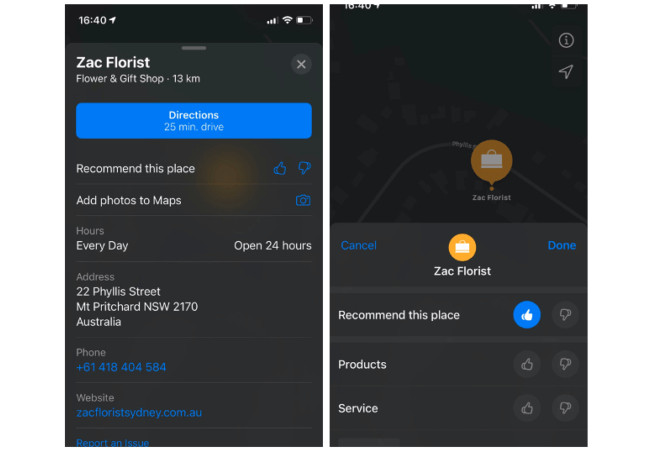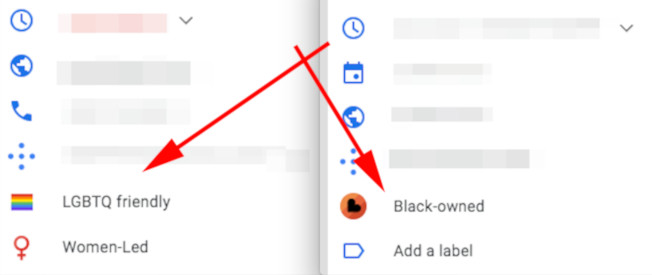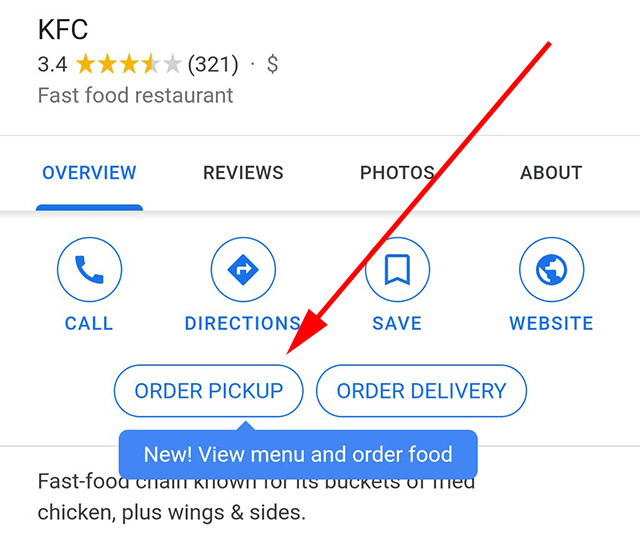September was a mixed bag in local search. While Google’s COVID-related updates continued as expected, the search giant’s primary competitors—Apple and Bing—both adjusted their review integrations in a way that hurt a different big player in the review market.
Unsurprisingly, the pandemic is prompting consumers to reconsider how they judge and choose businesses, so changes in the review market were inevitable. Yet the nature of these changes have taken many by surprise. Let’s take a closer look.
Bing and Apple drop Yelp reviews
With no warning at all, Bing has dropped Yelp reviews from its local listings. Without a first-party alternative, Bing still integrates a number of other review sources such as TripAdvisor, OpenTable, Foursquare, and Facebook, but will no longer feature Yelp.
In a much more obvious pull away from Yelp, Apple announced that its new iOS 14 beta will start to remove integrations with both Yelp and TripAdvisor. Why? Because Apple is looking to remove all third-party integrations as it launches its own first-party review platform. Yelp and TripAdvisor reviews will still exist alongside Apple’s own, but once Apple reviews reach the critical mass necessary, Yelp and TripAdvisor will disappear from all Apple listings.
Apple’s review format will introduce features other local listings platforms have so far overlooked, such as allowing users to differentiate their reviews between products and services. Enjoying a product but didn’t like the in-store experience? Well, you can qualify you review to make that distinction clear. Apple’s ratings will also use a binary thumb up or down system like Facebook, rather than a star-rating system like Google. The biggest benefit to Apple’s reviews, however, is its spam-prevention measures for both photos and the ratings themselves.

Source: @BeauGiles
Apple users will be able to upload their photos directly into map listings. Unlike similar mechanisms on other sites, where unflattering or fraudulent photos are often the result, photos will be reviewed by humans before appearing in Apple Maps. Apple will also only accept ratings from people who’ve physically visited a venue based on location data. This will further cut down on fraudulent reviews, which are prominent on Google, TripAdvisor, and more. To ensure these authentic reviews begin to populate Apple’s first-party platform, Apple is using on-device machine learning to present review rating opportunities when it sees that someone has visited a place several times. When these reviews populate enough of Apple Maps, they will have the opportunity to drop Yelp and TripAdvisor entirely.
Yelp will be rocked by Bing and Apple’s latest moves. After seeing its own traffic plummet year-over-year, it is now losing two of its primary distribution channels. In 2020, Yelp felt the harsh sting of COVID-19 as its primary niche of restaurant reviews suffered immensely from lockdowns. In its recent quarterly financial filing, Yelp noted that unique visitors for the last three months dropped by roughly 37% across all of their surfaces (app, mobile web, desktop). The loss of even more traffic due to Apple’s own first-party review platform only adds insult to injury for the former industry-leader.
With Google’s ongoing attempts to poach Yelp’s review market share and now both Apple and Bing dropping support, things are not looking good for Yelp. While the platform is still valuable to some businesses, that value has only been diminishing. Yes, it is still a powerhouse review platform (in the US, at least) but its trajectory suggests it won’t stay that way for long.
Attribute uptake, order pickups, and online reservations
Attributes, unsurprisingly, have shown themselves to be an essential feature of Google Maps this year. Once a unique feature of hotels, Google attributes now cover a large range of topics in almost every business category. Whether necessitated by COVID-19 or not, they are here to stay.

Source: @SeoAllie
With their accelerating uptake by countless businesses, Google is taking more steps to make attributes even more prominent to users. For instance, it is now showing attribute labels on desktop Maps listings. This feature already existed on mobile but, given the importance of attributes and the fact that more users are viewing Maps at home, Google added these labels to desktop as well.

Source: @sergey_alakov
In addition, Google is more often showing the “order pickup” button on local listings where the restaurant or business offers curbside pickup. With these new changes, Google is making its platform more streamlined; users have fewer clicks to get the information they need. If business owners didn’t see the value in adding attributes or pickup options, it should be abundantly clear by now.
The pandemic has also led Google to expand its “Reserve with Google” feature beyond in-person appointments to now include online services and classes. Working with a Reserve with Google partner is necessary to enable the scheduling functionality for online classes or appointments. At the business’s discretion, they can choose between a variety of platforms to facilitate these online appointments such as Google Meet, Zoom, or Webex.
Google My Business (GMB) adds Health & Safety attributes
Google has just added a new attribute category, Health & Safety, which includes the attributes:
- Appointment required
- Mask required
- Temperature check required
- Staff get temperature checks
- Staff wear masks
As with all attributes on Google, not every option across business categories. For example, “Appointment required” is available for a health-related business, but not for a restaurant. As always, regardless of which attributes are available to your business, you should include every applicable attribute on your listings.
Consumers are known to pay close attention to the health and safety measures a business takes. Many customers are nervous about visiting some businesses, especially unfamiliar ones, if they are unaware of the business’s safety standards. The signaling of these new attributes can be the difference between a customer choosing your business or a competitor.
Businesses’ safety enforcement—or lack thereof—has also been increasingly appearing in reviews. In fact, the subset of reviews focused specifically on health and safety standards now have a sizable impact on a business’s overall rating. Mask rules in particular appear in review copy with great regularity. Don’t take it as a given that your business is known to enforce mask policies: confirm this fact in your attributes.
Need to make sure your listings stay ahead of an ever-changing game? It just happens to be our specialty. Let’s talk.




